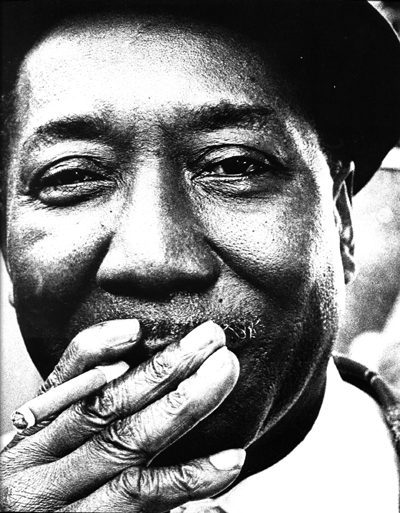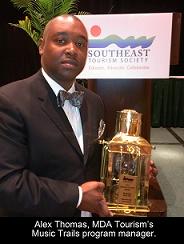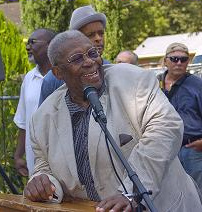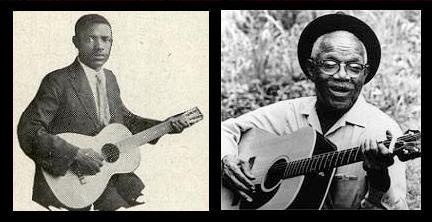
By Janice K. Neal-Vincent
Contributing Writer
 The month of March is devoted to the Hall of Fame at the Old Capitol Museum on State Street in Jackson.
The month of March is devoted to the Hall of Fame at the Old Capitol Museum on State Street in Jackson.
On March 2, Scott Barretta, principal writer and researcher for the Mississippi Blues Trail, began a series of events to follow with his historic account of bluesman Muddy Waters’ classic band sound.
Barretta told the audience that Waters – a Stovall Plantation Clarksdale, Miss. native – was born in 1913. During his early years, Waters learned to play blues on a harmonica. But he began to emulate blues artists Son House and Robert Johnson while playing his guitar when he was seventeen.
“It was Waters’ use of amplification though, that made him the only recording artist who was amplified on a 1958 tour of England. That tour marked perhaps the origination of amplified, modern urban blues,” said Barretta. Over the years, the iconic blues entertainer displayed his artistry by adding to his musical repertoire string instruments such as fiddles and banjos.
Barretta explained that although Waters’ sound was basically Delta blues electrified, “his use of microtones, in both his vocals and slide playing, made it extremely difficult to duplicate and follow correctly.” In his own words, Waters recognized, “My blues look so simple, so easy to do, but it’s not.”
Despite his blues being difficult to play, Waters’ indomitable presence has inundated many in different musical arena. The 1950 “Rollin Stone” song was revered in many communities across America. The Rolling Stones named their group after it. Rolling Stone magazine derived its name from the song. The songs “Rollin” and “Tumblin” were on Eric Clapton’s Fresh Cream 1966 debut album. Additionally, Bob Dylan adapted “Rollin Stone” on his album Modern Times.
As his music stretched beyond immediacy throughout the United States and beyond, Waters’ use of the following genres held youth and adults captive: blues, rhythm and blues, rock and roll, hard rock, folk, jazz and country.
In addition to his signature tune “Rollin Stone,” Waters produced other hits that treated a variety of themes. Among the hits were “Hoochie Coochie Man,” “I Just Want to Make Love to You,” “I’m Ready,” “I Can’t Be Satisfied,” “I Feel Like Going Home,” “Mannish Boy,” “Sugar Sweet,” “Trouble No More,” “Forty Days and Forty Nights,” “Don’t Go No Farther,” and “Mojo Working.”
Youth and adults attended Barretta’s event. Eighty two-year-old Helen Ellis who is a retired interior designer maintained, “The blues in general is pretty much over my head, and I’m trying to learn about it. I think it’s interesting.”
A group of West Jackson Career Development Center students and their teacher/mentor, Eric Irvin, were present. “I like to find out about my black cultural music. I loved the program because he (Barretta) talked about the different musical sounds,” said Quendarius Howard.
Trelin McWilliams, West Jackson CDC graduate, said, “What the speaker was talking about was very significant. I could visualize what he was talking about. Muddy Waters had to work hard to get to Chicago and to elevate himself. I think the sky is the limit. Times were much worse than now. I know if he did it, I can do it.”
Waters’ recordings appear on Aristocrat Records, Chess Records and Testament Records. Often referred to as the “Father of modern Chicago blues,” the bluesman was nicknamed “Muddy” by his grandmother Della Grant, “because he loved to play in the muddy water of nearby Deer Creek (in Issaquena County).”
Waters died in his sleep on April 30, 1983. Two years after his death, Chicago designated the one-block section between 900 and 1000 E. 43rd Street near his former home on the city’s south side “Honorary Muddy Waters Drive.”
The late B.B. King remarked after Waters’ death, “It’s going to be years and years before most people realize how greatly he contributed to American music.”
Clarksdale has a Missississppi Blues Trail marker which is the site of Muddy Waters’ cabin that was placed by the Mississippi Blues Commission.
For further information contact the Mississippi Department of Archives and History (MDAH) at (601) 576-6850.




Be the first to comment